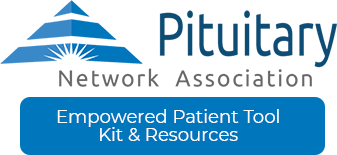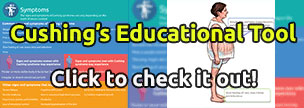
“We are what we repeatedly do. Excellence, then, is not an act, but a habit.“
— Will Durant
PNA Medical Corner: MRI for Cushing’s
7T MRI for Cushing’s Disease: A Single Institutional Experience and Literature Review
PMID: 38365424 DOI: 10.3174/ajnr.A8209
Abstract
Background and purpose: Cushing disease is typically caused by a pituitary adenoma that frequently is small and challenging to detect on conventional MRI. High field strength 7T MRI can leverage increased signal-to-noise and contrast-to-noise ratios compared to lower-field strength MRI to help identify small pituitary lesions. We aim to describe our institutional experience with 7T MRI in patients with Cushing disease and perform a review of the literature.
Materials and methods: A retrospective analysis of 7T MRI findings in patients with pathology proven cases of Cushing disease from a single institution, followed by a review of the literature on 7T MRI for Cushing disease.
Results: Our institutional experience identified Cushing adenomas in 10/13 (76.9%) patients on 7T, however only 5/13 (38.5%) lesions were discrete. Overall, the imaging protocols used were heterogeneous in terms of contrast dose as well as type of post-contrast T1-weighted sequences (Dynamic, 2D vs 3D, and type of 3D sequence). From our institutional data, specific post-gadolinium T1-weighted sequences were helpful in identifying a surgical lesion as follows: Dynamic Contrast Enhanced 2/7 (28.6%), 2D FSE 4/8 (50%), 3D SPACE 5/6 (83.3%), and 3D MPRAGE 8/11 (72.7%). The literature review identified Cushing adenomas in 31/33 (93.9%) patients on 7T.
Conclusions: 7T MRI for pituitary lesion localization in Cushing disease is a new technique with imaging protocols that varied widely. Further comparative research is needed to identify the optimal imaging technique as well as to assess the benefit of 7T over lower-field strength MRI.
Abbreviations: MRI = Magnetic Resonance Imaging, CT = Computed Tomography, 7T = 7 Tesla, DCE = Dynamic Contrast Enhanced.
© 2024 by American Journal of Neuroradiology.
The FDA has approved NGENLA (somatrogon-ghla)
The FDA has approved NGENLA (somatrogon-ghla), a once-weekly, human growth hormone analog indicated for treatment of pediatric patients aged three years and older who have growth failure due to an inadequate secretion of endogenous growth hormone.
Count on your Xeris CareConnection™ Team for unparalleled Cushing’s Support
Cushing’s can be challenging, but there is support so patients can feel like themselves again. The main goal of treating Cushing’s is to get cortisol levels back to normal. This Pituitary Awareness Month, Xeris Pharmaceuticals® is highlighting the importance of one-on-one support for patients living with Cushing’s Syndrome and support for HCPs treating Cushing’s Syndrome.
Sign up to get dedicated support:
Patients: Sign up for support | Recorlev® (levoketoconazole)
HCP’s: Connect with Xeris support | RECORLEV® (levoketoconazole)
Have more questions? Call for more support at 1-844-444-RCLV (7258)
Copyright © 2024 Pituitary Network Association All rights reserved.
Disclaimer: PNA does not engage in the practice of medicine. It is not a medical authority, nor does it claim to have medical expertise. In all cases, PNA recommends that you consult your own physician regarding any course of treatment or medication.
Our mailing address is:
Pituitary Network Association
P.O. Box 1958
Thousand Oaks, CA 91358
(805) 499-9973 Phone - (805) 480-0633 Fax
Email info@pituitary.org
You are receiving this Newsletter because you have shown interest in receiving information about our activities.
If you do not want to receive any more emails from PNA, Unsubscribe.















